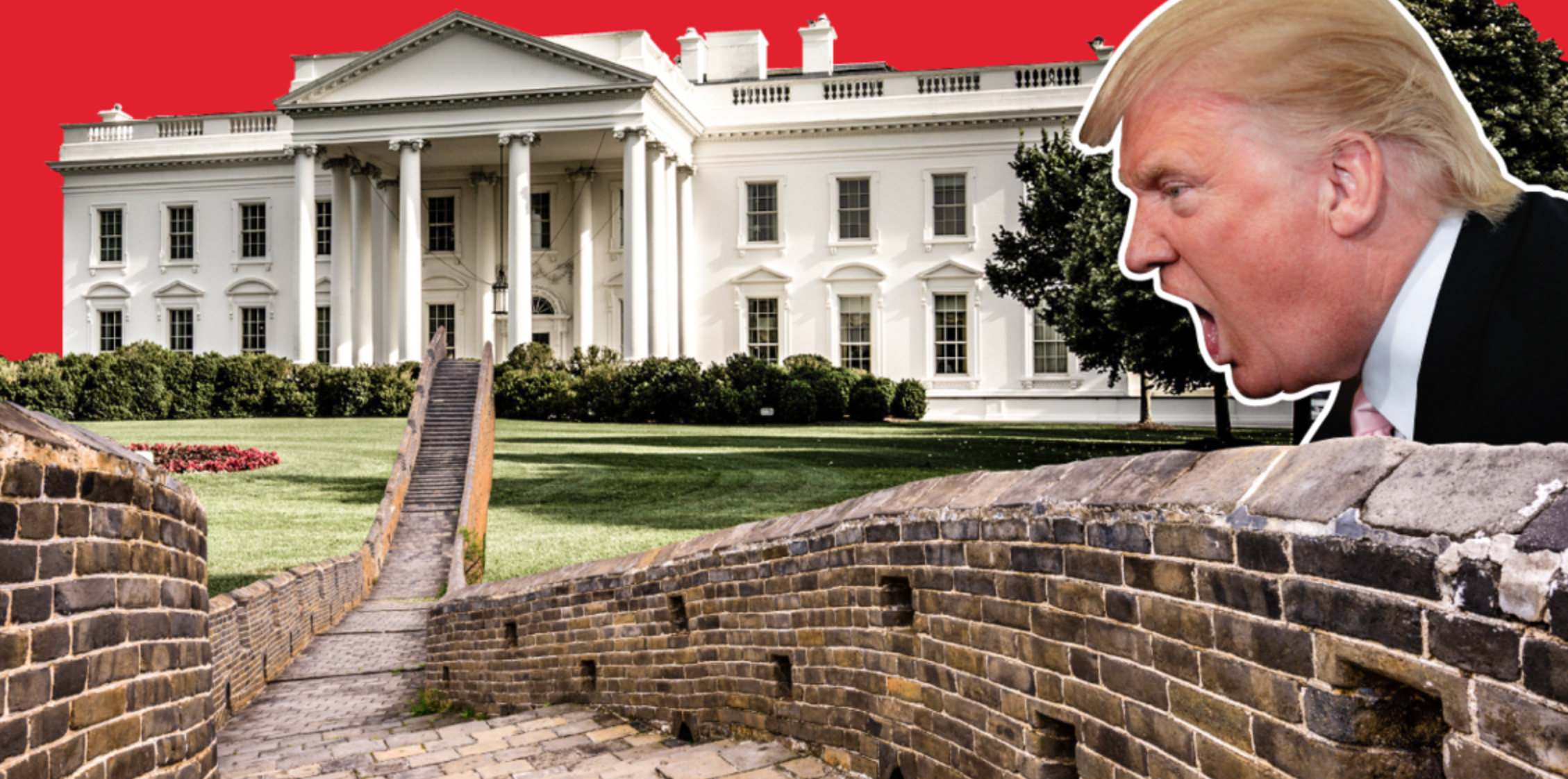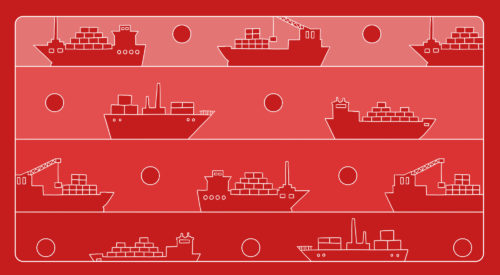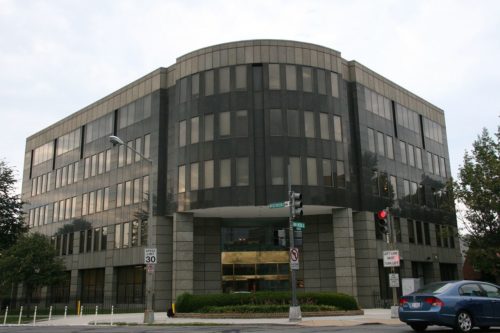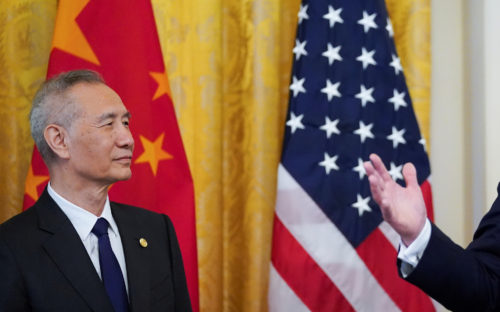Trade war, day 41: China undecided on next move?

On day 29 of the U.S.-China trade war (covered on The China Project Access), when China responded to a threatened additional $200 billion in tariffs from the American side, some observers were surprised that China backed away from a dollar-for-dollar retaliation and chose to only announce $60 billion in reciprocal tariffs. Of course, China only imports a bit more than $150 billion in U.S. goods a year, so the initially promised full reciprocation wasn’t possible, but the point is that China sort of hedged its bets with a measured response.
The New York Times counts that as the first instance where China really did “shift course” since the trade war began, and suggests (paywall) that we may be approaching another turning point in China’s strategy:
“In recent days, officials from the Commerce Ministry, the police and other agencies have summoned exporters to ask about plans to lay off workers or shift supply chains to other countries.”
“Confronting the possibility that the tariffs may remain for months or years and that Chinese access to the American market could tighten further, Mr. Xi does not appear to have settled on a strategy for limiting the damage or for persuading Mr. Trump to negotiate a deal.”
China’s Commerce Ministry in particular is reportedly feeling stretched as it tries to keep up with the twists and turns of the trade war and give leaders advice. The South China Morning Post reports:
“The Chinese Communist Party has ordered the Ministry of Commerce to stem an ‘exodus’ of cadres as the country goes into battle in a trade war with the United States.
The party’s disciplinary watchdog issued the order late last month after a three-month inspection of the ministry.
A retired trade official told the South China Morning Post that a shortage of veterans in the ministry, especially those experienced in trade negotiations and macroeconomic management, could affect the quality of advice given to those making decisions in the trade war.”
Many commentators are pointing out that now is a particularly tricky time for the leadership of Xi Jinping, as well as for China’s economy:
- With the latest vaccine scandal, “Public antipathy has grown more widespread. After similar scandals in the past, the far left in Chinese society would typically voice their unconditional support for the authorities. This time, most have maintained a rare silence, even if they have not directly criticised the government,” Deng Yuwen, an independent political commentator writes in the South China Morning Post.
- “Some scholars have warned that the trade war might trigger an eruption of public anger,” Deng says. He warns that “an overall restlessness is appearing in society and people are crying out for changes to the system.”
- Several prominent intellectuals have either criticized the leadership directly, or been criticized for their excessive nationalism, as we have summarized on The China Project.
- “China is in a tough spot. The strengthening dollar threatens to provoke more capital flight out of China, but any effort to shore up the renminbi in response could further slow the Chinese economy,” Ruchir Sharma, the head of emerging markets and chief global strategist at Morgan Stanley Investment Management, writes in the New York Times (paywall).
An apparent censorship order from the State Administration of Radio and Television (SART), screenshot by Hao Hong, Chief Strategist at BoCom Int’l, shows authorities actively trying to maintain calm.
- “Don’t use words like ‘plunge,’ ‘boom,’ ‘crash,’ or other words that stir up emotion” (不使用‘暴跌’‘暴涨’‘崩盘’等煽情用语 bù shǐyòng bàodiē bàozhǎng bēngpán děng shānqíng yòngyǔ) when discussing the stock market, broadcast and other media are instructed by SART.
- The Finance Ministry ordered 1 trillion yuan in bonds ($144 billion) to be sold by local governments by the end of September, Caixin reports (paywall), one of several new measures being taken to support growth during the current time of uncertainty.
- To learn more about how policymakers are encouraging financial stability, check out this report from economics consultancy Trivium on the Politburo’s plans for the second half of 2018.
Other trade war reporting:
- Cyber aspect of trade war
China could reportedly use its ‘unwritten’ tech rules as an ‘invisible tool’ against US firms / CNBC
“With Sino-American trade tensions escalating, China’s cybersecurity standards could be used as an ‘invisible tool’ of retaliation against Washington’s tariffs, according to one expert.
Those so-called standards are government-issued guidelines about things like firewalls and software that are technically voluntary, but are oftentimes treated as mandatory by foreign firms’ Chinese business partners. Over the past several years, Beijing has issued close to 300 new national standards, Washington-based think tank the Center for Strategic and International Studies said in a report earlier this month.” - China doesn’t want U.S. oil
Chinese oil importers shun US crude despite tariff reversal / Reuters
“Not a single tanker has loaded crude oil from the United States bound for China since the start of August, Thomson Reuters Eikon ship tracking data showed, compared with about 300,000 barrels per day (bpd) in June and July.” - Christmas shopping in July
Trump trade war with China spurs ‘off the charts’ rush at Port of LA / CNBC
“The escalating trade war with China is leading U.S. retailers to speed up the import of goods from Asia’s largest economy to avoid new tariffs and ensure they have adequate supplies for the winter holidays.”
“Executives say nervous importers pushed forward shipments into the Port of Los Angeles that would normally arrive later in the year into July due to uncertainty surrounding the U.S.-China trade fight and looming tariffs proposed on a variety of imported consumer products.”
Previously in The China Project’s trade war coverage:






